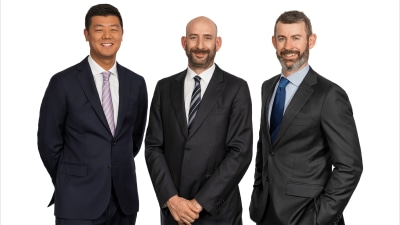A burning issue – decarbonising the global steel industry


One of the most ubiquitous materials in the modern world, steel is used in everything from suspension bridges and skyscrapers to surgical scalpels and cookware. The ready availability of the iron ore from which steel is made and the immense versatility of the finished material have made it integral to the way we live today.
Unlike that other great invention of the industrial age, the internal combustion engine, steel looks set to continue its dominance as we transition to a green future: just about every greenhouse gas mitigation technology requires the use of steel, including electrification, thermal energy, and the hydrogen economy.
However, producing steel is itself a carbon intensive activity which is responsible for around 7% of energy sector CO2 emissions – or closer to 10% if you include the impacts of mining and transporting the required raw materials (it also accounts for 8% of final energy demand).1 Not only that, but the steel industry is a hard to abate sector for which there is no silver bullet currently on offer.
Despite the difficulties involved, cleaning up steelmaking will be critical to the wider success of decarbonisation efforts, a fact that governments globally increasingly recognise. Approximately 74% of steel production comes from countries which have a net-zero target in either existing or draft legislation or policy documents, and that figure is only likely to increase.2 Steel companies therefore face a race to decarbonise before policy changes potentially make their businesses unviable. It is perhaps unsurprising, then, that in recent months four of the top five steel producers have announced intentions to reach net-zero carbon emissions.
Collaboration to reduce emissions across the value chain
Through our stewardship services team, EOS at Federated Hermes, we engage with companies across the steel value chain on decarbonisation, including mining companies, steel producers and their customers, in particular automotive and construction. We engage with mining companies on reducing their own Scope 1 and 2 emissions through two main approaches: 1. Reducing Scope 1 emissions through the transitioning of dig, haul and rail fleets from diesel to electric, hydrogen and fuel cell electric vehicles (EVs) – for the most part this is a longer-term ambition, although mining EVs including huge dumper trucks are being piloted. 2. Reducing Scope 2 emissions by switching from natural gas and coal to renewable energy sources (especially solar) – this creates net savings and is particularly attractive in the short term.
The three routes to decarbonisation
In theory reaching net-zero carbon dioxide emission from steel is possible by combining three main routes: demand management, energy efficiency measures, and decarbonisation technologies.3 As previously mentioned, none of these represent a magic bullet so it makes sense for the industry to pursue all of these solutions in view of the scale of the task.
For the industry as a whole, these three routes will go a long way to mitigating emissions in the short-to-medium term. However, even using carbon capture, utilisation and storage in conjunction with these methods is not expected to eliminate all emissions. Achieving the ultimate goal of net-zero steel is likely to require the eventual replacement of blast furnaces with electric arc furnaces, potentially supplemented by the adoption of electrolysis production. Feedstock for these electric arc furnaces will ideally come from scrap, with hydrogen-produced DRI potentially making up any shortfall until scrap supply can meet demand. Decarbonising the steel industry is far from a simple task, but it is an essential one if we are to achieve a zero-carbon future.
To read more about how the international business of Federated Hermes engages with companies across the steel value chain, read the full edition of Spectrum – decarbonising the global steel industry.
1 “Iron and Steel Technology Roadmap,” published by the IEA in October 2020.
2 This is calculated by the international business of Federated Hermes using World Steel Association data from 2020 production by country and Net Zero Tracker | Energy & Climate Intelligence Unit (eciu.net).
3 Energy Transition Commission.
For Wholesale clients only. All distribution of the products in Australia is carried out by Federated Investors Australia Services Pty Ltd which holds an Australian Financial Services Licence (No. 433831).
The value of investments and income from them may go down as well as up, and you may not get back the original amount invested.
Federated Hermes Investment Funds plc (“FHIF”) is an open-ended investment company with variable capital and with segregated liability between its sub-funds (each, a “Fund”). FHIF is incorporated in Ireland and authorised by the Central Bank of Ireland (“CBI”). FHIF appoints Hermes Fund Managers Ireland Limited (“HFMIL”) as its management company which is authorised and regulated by the CBI. Registered address: The Wilde, 53 Merrion Square, Dublin 2, Ireland.
Recommended for you
A healthy lifestyle doesn’t have to be a question of all or nothing. If you can take small, consistent steps to improve ...
The world’s electricity grids are large, but they are about to become giants with the fundamental shift to the electrifi...
In today’s dynamic world, asset owners and asset managers are continually having to adapt to changing market conditions.
While investing with an ESG focus presents a huge opportunity, it also presents a significant challenge. Consistent and quality data is at the forefront of this challenge. Coupled with increasing guidelines and regulations, obtaining an accurate picture of ESG investments remains a tortuous journey. In this environment, it is important to be informed writes Philippe Tassin, Head of Asset Owner and Manager Client Lines APAC, at BNP Paribas, following his recent panel session at the Fund Business Investment Data & Technology Summit in Australia











Add new comment